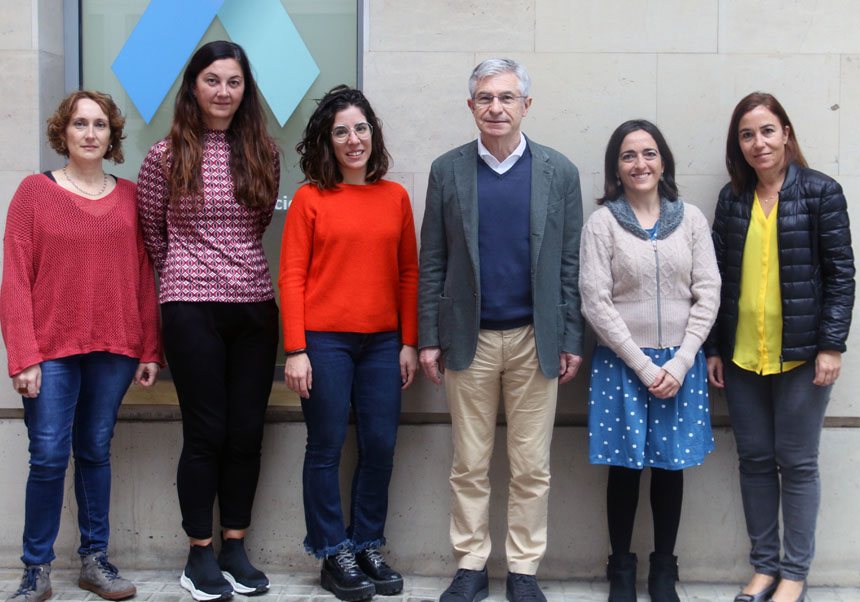Professor Antonio Cano investigates a drug that reduces menopausal hot flashes
- Scientific Culture and Innovation Unit
- April 19th, 2023

Antonio Cano, full professor of the Department of Paediatrics, Obstetrics and Gynaecology of the University of Valencia and coordinator of the Women’s Health Research Group at the INCLIVA Health Research Institute, of the Clinical Hospital of Valencia, participates in an international investigation published in The Lancet magazine that has released the results of the SKYLIGHT 1 clinical trial. This demonstrates the effectiveness of the drug fezolinetant against hot flashes suffered by menopausal women and other women with a special risk profile such as breast cancer survivors receiving treatment with hormone cancellation.
This drug is a neurokinin 3 receptor blocker, a mediator that acts at the level of the hypothalamus to regulate the thermoregulatory centre, which is affected by the loss of oestrogen, with the consequent production of hot flashes. The study was carried out at 97 facilities in the United States, Canada, the Czech Republic, Hungary, Poland, Spain and the United Kingdom.
Menopause is associated with a symptom complex and with greater susceptibility to diseases, such as osteoporosis, which also suffer from groups of women prior to menopause. Among them, the survivors of breast cancer stand out, who, after overcoming the disease, frequently receive hormone cancellation treatment for years.
Among these symptoms, hot flashes are one of the most prevalent and with the greatest negative impact on work activity and quality of life in general. Population studies have shown that up to 80% of women perceive them and that in around 25% they are frequent and severe.
Neurokinin 3 is a small protein that acts as a stimulant for neurons, the cells of the central nervous system. At the brain level, in a region known as the hypothalamus, its production is regulated by oestrogens, the female ovarian hormones. When the ovary stops working, there is an overproduction of neurokinin 3, which excites the neurons responsible for maintaining temperature control. The result is a sudden feeling of heat, which can appear with more or less frequency or intensity, and which, in some women, interferes with sleep, work productivity and other activities of daily life. In women where this problem is particularly acute, such as those subjected to intense ovarian deprivation due to diseases such as breast cancer, the series of hot flashes, frequent and intense in some cases, becomes a determinant of suffering added to that of the disease.
The most effective treatment known to date is oestrogen supplementation, but some women do not accept it, and in cases such as breast cancer survivors, they cannot be given.
The Phase 3 randomised, double-blind, placebo-controlled SKYLIGHT 1 trial lasted 12 weeks, with a 40-week active treatment extension. It took place between July 11, 2019 and August 11, 2021, and initially recruited 2,205 women aged 40 to 65 years with a diverse profile and representative of the potential target population for therapy with fezolinetant.
The INCLIVA Women’s Health Research Group directed by Antonio Cano has been investigating osteoporosis in women cancer survivors for several years, with the aim of improving their quality of life and health in the face of this pathology. In this context, they participate in international research on new neurokinin 3 receptor blocking products.
Article:
Samuel Lederman, Faith D Ottery, Antonio Cano et al. «Fezolinetant for treatment of moderate-to-severe vasomotor symptoms associated with menopause (SKYLIGHT 1): a phase 3 randomised controlled study». Volume 401, Issue 10382, P1091-1102, April 01, 2023. DOI https://doi.org/10.1016/S0140-6736(23)00085-5
















